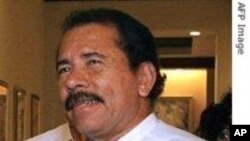<!-- IMAGE -->
Once torn by civil war and economic hardships, Nicaragua has
come far since the troubled days of the 1980s. Free elections in 1990
brought a change in leadership that helped bolster democratic
institutions, advance national reconciliation, stabilize the economy
and protect human rights. The picture grew brighter with a peaceful
transfer of power after elections in 1996 and 2001. It is regrettable
that the current government of President Daniel Ortega, who came to
power through elections in 2006, seems to be reneging on its embrace of
the democratic process with actions that cast doubt on the
transparency, inclusiveness, and fairness of upcoming municipal
elections.
The ruling Sandinista National Liberation Front, the FSLN, holds a
majority of mayoral posts and city council seats around the country,
and it appears intent on using extra-political means to keep it that
way. Two opposition political parties have been barred from fielding
candidates in the balloting. Local police have raided the offices of
non-governmental organizations working to promote respect for human
rights, the rule of law and economic development.
With just a week until voting gets under way, the government has yet
to accredit credible domestic and international observers who, as in
past elections, work to ensure that the process is free and fair.
Along with political rights, Nicaragua's constitution guarantees
freedom of speech, peaceful assembly, and association. Are these at
risk now too?
The United States calls on the Government of Nicaragua to ensure
that the campaign and the election will be free of intimidation,
violence and harassment of all citizens wishing to exercise their right
to vote.
| <!-- IMAGE --> |




